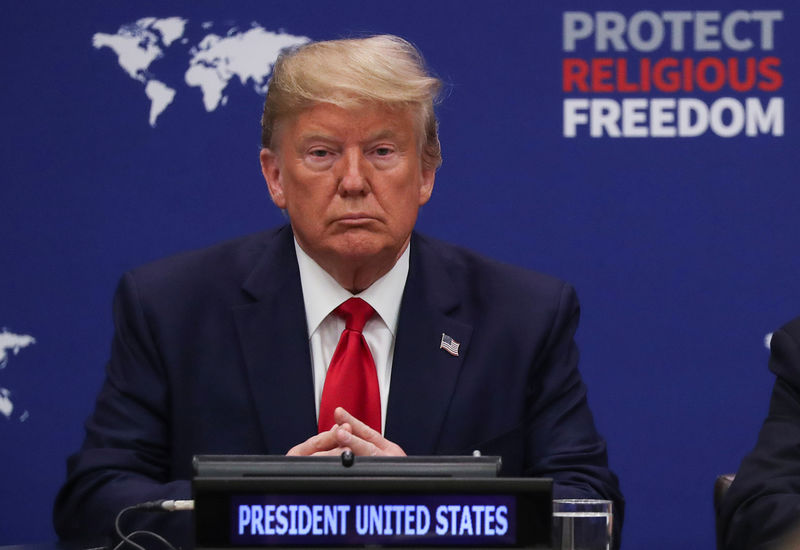(Reuters) - Interest rate futures traders believe the U.S. Federal Reserve will bow to President Donald Trump's persistent tweets pressuring the central bank to lower interest rates, and this poses a "significant" risk to Fed independence, according to research released on Monday.
Researchers from Duke University and the London Business School studied Trump's Fed-focused tweets, starting with his first one bemoaning Fed policy in April 2018, and the resulting price movements in the fed fund futures market. Traders use the futures contracts to take bets on where the Fed will set its benchmark lending rate.
In a National Bureau of Economic Research working paper titled, Duke's Francesco Bianchi and London Business School's Howard Kung and Thilo Kind found Trump's tweets lowered market-based expectations for the central bank's interest rate policy by a tenth of a percentage point.
"Overall, we find strong evidence that the consistent pressure applied by President Trump to pursue more expansionary monetary policy is manifested in the market expectations of a lower target rate, forecasting a steady erosion in central bank independence over the course of his presidency" they said.
The researchers wrote that "even if President Trump does not directly influence Fed decisions, his political pressure can still affect policy indirectly by changing market expectations regarding the Fed."
Given that when the Fed does change interest rates, it typically does so in quarter-point increments, the tenth of a point effect on market expectations is significant, they said.
"Our findings suggest that market participants believe that the erosion to central bank independence is significant and persistent," they wrote.
Their finding contrasts with the results of two recent Reuters polls, one of American voters and the other of global economists, which found respondents saying they see little impact on the Fed from Trump's pressure.
In the Reuters Ipsos poll of voters released last week, it appears Trump's barrage of tweets blasting the Fed have been ignored by both Republicans and Democrats who largely see the central bank as neutral in its decisionmaking.
That conclusion was supported in a separate Reuters poll of economists in which 80% of respondents said they did not think the Fed is influenced by Trump's criticism.
Trump has taken to Twitter several times in the last several days to voice his displeasure with the bank's policy move last week, when it lowered its targeted interest rate range to 1.75%-2.00% from 2.00%-2.25%. It was the second rate cut this year, taken as insurance against uncertainty arising from Trump's trade war with China that has been weighing on business investment and the overall outlook.

Less than half an hour after that decision was released, Trump derided the Fed and its chair, Jerome Powell, saying they had "No 'guts,' no sense, no vision!"